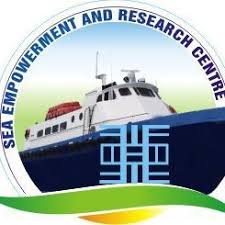The Nigerian maritime sector faces significant challenges and opportunities, requiring freight forwarders to recommit to resilience and professional excellence. Global events have created far-reaching impacts on the nation’s economy, international trade, and security supply chain. Freight forwarders, as critical players in the transport logistics industry, are not immune to these challenges and bear the responsibility of upholding high professional discipline and maintaining quality services amidst these turbulent times. This call for renewed commitment emphasizes key industry focus areas, emerging changes, and persistent challenges that demand immediate attention.
Navigating the evolving landscape of the maritime sector requires freight forwarders to adapt to technological advancements and regulatory changes. A primary focus should be on embracing the national single window system and customs migration to the B’Odogwu’s trade platform, which leverages machine learning and artificial intelligence. This transition necessitates upskilling and continuous professional development among practitioners to effectively utilize these new technologies. Furthermore, compliance with the newly signed tax reform through the Nigeria Revenue Service is paramount, underscoring the increased scrutiny on financial transactions within the sector. A functional and inclusive Council for the Regulation of Freight Forwarding in Nigeria is essential to provide effective oversight and guidance. This necessitates a collaborative approach, devoid of internal conflicts and prioritizing the establishment of lasting professional legacies.
The role of freight forwarders in driving the maritime sector’s progress is crucial, yet their influence often appears diminished. Practitioners must actively engage in discussions surrounding critical issues, such as the impact of foreign exchange rates and the dynamics of the Chinese currency swap policy on the profession and the wider economy. Moreover, upholding professional discipline and enhancing supply chain security compliance are paramount. Freight forwarders must actively combat the influx of counterfeit, substandard, pirated, and dangerous goods by diligently adhering to profiling principles within the context of port automation and digitalization. These efforts contribute to a more secure and efficient maritime sector, safeguarding both the industry and the nation’s consumers.
Addressing excessive taxation and redundant charges within the maritime sector is crucial for fostering a competitive environment. The multiplicity of levies and duplicated functions poses a significant obstacle to achieving the objectives of a regional transshipment hub. The anticipated reintroduction of charges, such as the four percent customs operation funding and levies stipulated in the Nigeria Shipping and Port Economic Regulatory Agency Act, further exacerbates this concern. Advocating for a streamlined and transparent fee structure is essential to promoting efficiency and attracting investment in the maritime sector.
The encroachment of foreign entities into the freight forwarding profession and the potential takeover by first-generation port operators and their shipping line affiliates pose a significant threat to local practitioners. Reactivating and enforcing local content laws is crucial to safeguarding the interests of Nigerian freight forwarders and ensuring their continued participation in the industry. A unified front among practitioners is essential to effectively address these challenges and advocate for policies that protect their professional standing. Collaboration and strategic alliances will strengthen their collective voice and enable them to effectively navigate the evolving landscape of the maritime sector.
To thrive amidst these complex dynamics, freight forwarders must prioritize collaboration, knowledge sharing, and continuous professional development. Investing in training and staying abreast of industry developments will equip practitioners with the necessary skills and expertise to navigate the changing landscape and effectively address emerging challenges. By fostering a culture of continuous learning and professional growth, freight forwarders can solidify their role as essential players in the Nigerian maritime sector and contribute to its long-term sustainability and success. This commitment to excellence will not only benefit individual practitioners but also strengthen the entire industry, fostering resilience and driving progress within the nation’s maritime domain.


